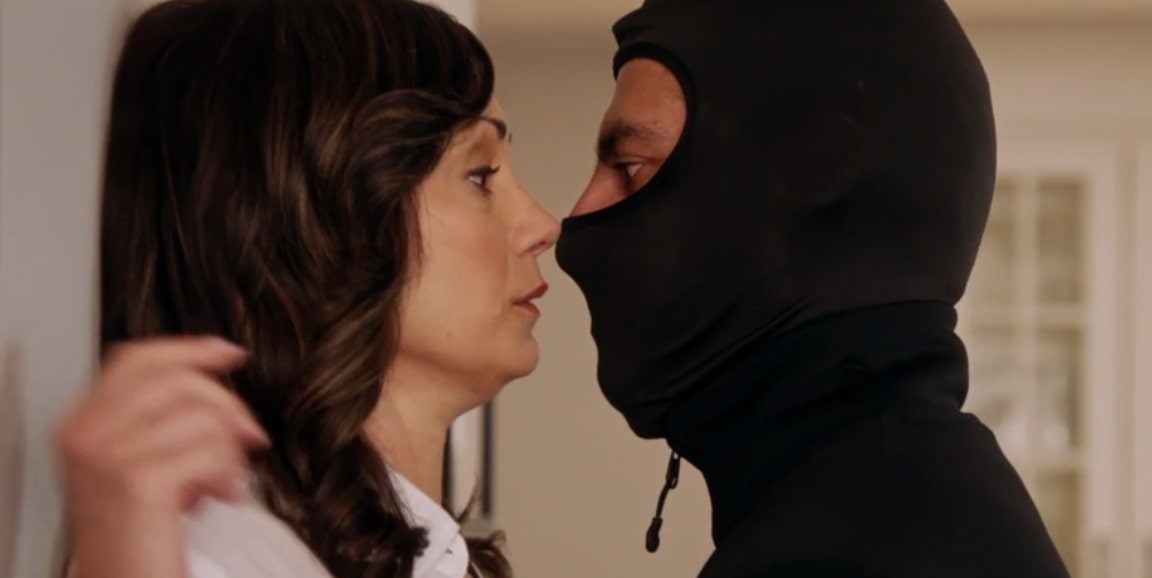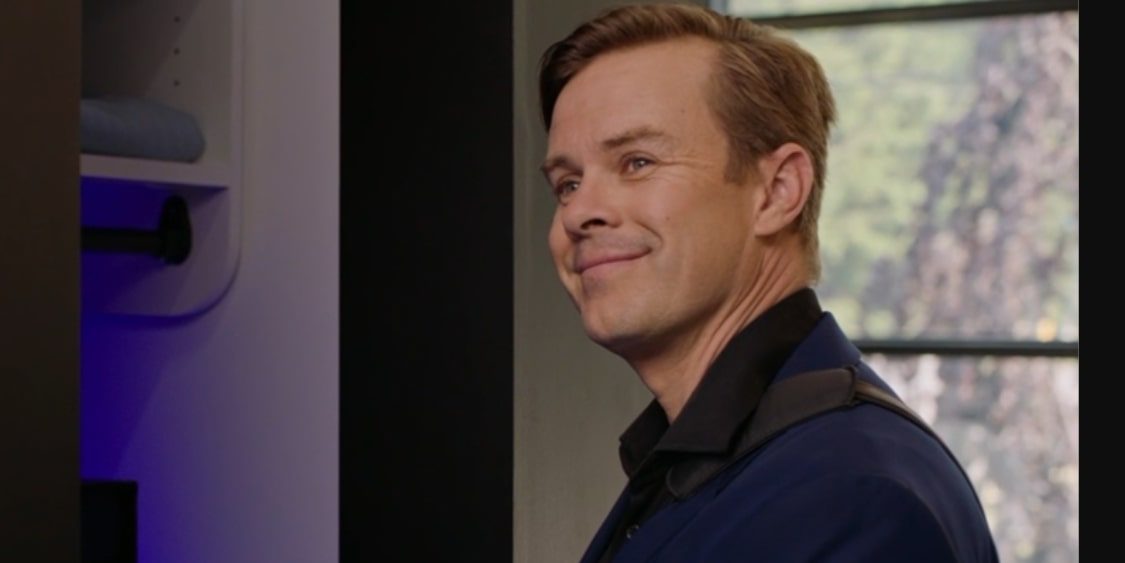Lifetime’s ‘Smart Home Killer’ opens with Leah Tomkins, a single working mother, surviving an attempted robbery. Though she calls 911, the intruder evades capture, leaving Leah anxious and shaken by the violation of her privacy and safety. Determined to move on, she relocates to a new home with her daughter, Harper, where they install an advanced security system called Soteria. However, the very system meant to protect them soon turns into their worst nightmare, as their every move is monitored and manipulated.
Trapped in their own home, the mother-daughter duo must fight to escape and save their lives. Directed by Meeshelle Neal, the 2023 film explores themes of technological vulnerability and the loss of autonomy in a world increasingly reliant on smart systems. It serves as a chilling reminder of how the tools designed for safety can become instruments of danger in the wrong hands.
Sweet Home Killer Offers a Peek Into the Foreseeable Reality of Potential Digital Malice
‘Smart Home Killer’ is not based on any single true story but serves as a poignant reflection of the technology-driven lives we lead today. Written by Mark Sanderson, the film presents a dystopian vision of the future, where the very technology designed to enhance and protect our lives can become a source of terror and manipulation. It highlights how even the most advanced innovations are not immune to the corruption of the human mind. Through the character of Devan Karloe, the mastermind behind the Soteria system, the film delves into the dangers of unchecked power and the chaos that can emerge in a world dominated by digital control.

Although the advanced security system depicted in ‘Smart Home Killer’ is not a widely available reality today, the film’s themes of privacy breaches and security vulnerabilities in an increasingly digital world are far from fictional. One notable real-world incident that echoes these concerns occurred in March 2023, when Rubrik, a prominent cybersecurity company specializing in cloud data management, was reportedly attacked by the Clop ransomware group. The attack exploited a zero-day vulnerability in GoAnywhere MFT (Managed File Transfer), a widely used software for securely transferring files. A zero-day vulnerability refers to a security flaw that is unknown to the software’s developers and has no existing patch or fixes at the time of discovery, making it a prime target for cybercriminals.
Such vulnerabilities provide hackers with the opportunity to exploit the flaw before it can be addressed. In this case, the Clop ransomware group reportedly took advantage of the vulnerability to gain unauthorized access to sensitive data. Ransomware is a type of malicious software designed to encrypt a victim’s data, making it inaccessible until a ransom is paid. The group accessed Rubrik’s non-production IT systems, which contained sensitive customer information, including names, contact details, and other internal data. Although Rubrik clarified that the breach did not affect their production systems or customer-managed data, the incident exposed significant risks associated with third-party software and highlighted the potential for cascading consequences in the digital ecosystem.
Real-Life Cases Have Showcased the Larger Consequences of Technical Failures
Another example of a security breach in a major tech company occurred in September 2017, when Equifax, one of the largest credit reporting agencies in the world, suffered a massive data breach. This incident exposed the personal data of approximately 147 million people, making it one of the largest and most damaging cyberattacks in history. The breach occurred due to a known vulnerability in Apache Struts, an open-source web application framework widely used by companies for developing Java-based applications. This specific vulnerability had been identified and patched months before the breach, but Equifax failed to apply the necessary security update to its systems in a timely manner.

As one can see, the failure of technology can have significant consequences, proving it is far from infallible despite how it is often portrayed. Inevitably, technology will continue to infiltrate even the most intimate and personal aspects of our lives. With artificial intelligence gaining control over and access to our homes, vehicles, and even thoughts, the questions raised by ‘Sweet Home Murder’ are anything but unrealistic. It serves as a stark reminder to remain cautious and vigilant. Movies like this play a vital role in encouraging critical evaluation of technological advancements before granting them unrestricted access—an especially crucial consideration in today’s rapidly evolving digital age.
Read More: Psycho Party Planner: Is Lifetime Movie Based on a True Story?


